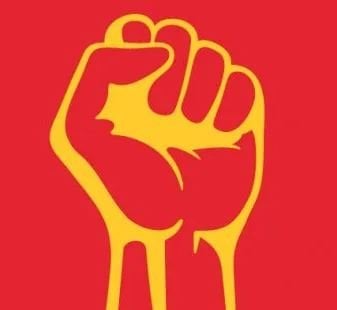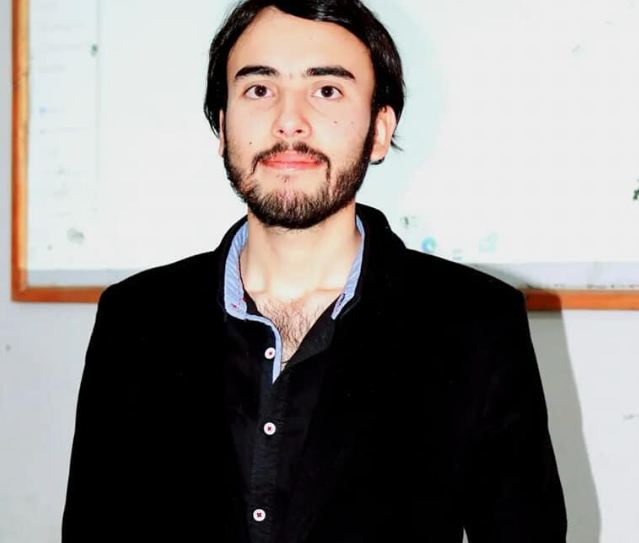The role of education in building the communist society

"Communist ideology is the expression of ideological, political, and moral unity. This is the advancement of social equality. Moral values cannot be developed without a sense of honesty and duty in human beings."
"Communism is a movement that involves discussion, debate, and decision-making about the principles and programs to be adopted for the future of society. Society is dynamic and so is socialism. Socialism can also be considered a principle for the future society. Therefore, the question of revolution is also included in this."
"The establishment of socialism through a revolution is not the end, it is just the beginning. The revolution will continue even after the socialist revolution. After the establishment of a communist society, there will be no need for a revolution. However, the working class will remain vigilant so that the revolutionary forces do not get a chance to rise again. This vigilance was necessary and still is."
This appears to be a statement about the ongoing nature of revolutionary processes and the need for vigilance in maintaining socialist and communist societies. The statement suggests that the establishment of socialism through revolution is only the beginning, and that further revolutionary struggles may be necessary even after socialism has been established. However, it also suggests that once a communist society has been established, there may no longer be a need for revolution. Nonetheless, the statement emphasizes the importance of the working class remaining vigilant in order to prevent the re-emergence of counter-revolutionary forces, implying that this vigilance is necessary both during and after the revolutionary process.
"The organization and the physical production of its unity are primarily economic. The reality created by communism is based on the individual's inability to exist independently, although the reality is simply the result of the individual's reaction
"Marx described the nature of communist society in the following words: when in the higher stage of communist society, the individual's dependence on the division of labor has disappeared, along with the antagonism between mental and physical labor; when labor is no longer just a means of earning a living, but has become the primary need of life; when productive forces have grown to such an extent that they can sustain cooperative (social) wealth from all sources in full flow, only then can the narrow horizon of bourgeois right be completely transcended, and society will be able to write on its banners: from each according to his ability, to each according to his needs."
The primary and only objective of socialism is to free individuals from all forms of slavery. According to the ideas of Marx's goal was to lift people out of poverty and prevent the dehumanization that comes from it, which causes suffering for human beings.
The abolition of labor division ensures the end of moral and intellectual decline, and if dehumanization is prevented and productive wealth is developed, then individual development can be seen in all directions.
Features of Communist Society
Characteristics of a communist society: According to Lenin's definition, a communist society is one in which everything, including land and factories, is collectively owned and people work together in common. In a communist society, there is no private ownership of the means of production, and all produced goods, including commodities, are distributed according to the needs of members of the communist society.
Therefore, both production and distribution are not based on private production, and both producers and distributors benefit equally. The first thing rejected by communism is inequality.
This is a fundamental feature of communist society that every individual must fulfill their duties according to their abilities. This is a very important feature of communist society. Every individual must perform some kind of duty. There is no compulsion that every person must perform a certain duty. They will do useful work according to their abilities. No one has the right to eat food without doing any work. The ideal of communism is that whoever does not work, does not get to eat. The Communist society wants to end the system of the idle class and illegal income. Work is mandatory. This does not mean that everyone will be forced to work. Lenin said that we will give the name of communism to this system, in which people will be controlled without any special coercion. Socialism rejects any possibility of coercion and adds freedom. Individuals will perform their social duties voluntarily. This is where the difference between capitalism and socialism lies. Socialism is the expression of moral and mental upliftment, the highest form of consciousness, where people do not want to live without work.
"They feel motivated to work. Communist society proclaims that everyone should work according to their ability and declare their needs accordingly. Development is necessary for this. Marxism accepts that differences in intellectual ability do not indicate differences in physical needs. The state of the communist society will bring forth the full flowering of all human abilities, and labor will make its capacity fully measurable. In addition, the communist society assures each individual that they will receive what they need, no matter what their situation is. The fact is that human needs do not depend on his/her position or intellectual attainment. Therefore, obtaining what they need through work and the dictatorship of labor is the fundamental principle of communist society. The expansion of demand and the development of intellectual capacity will both move forward together. The goal of another communist society is to identify abilities and transform them into reality. The capitalist system must confront the contradiction between mental and physical labor for workers."
"The communist society will shorten working hours and use new and advanced technology to free individuals from the drudgery of work. Workers will have ample opportunities for entertainment and personal development. Critics of socialist society wrongly accuse it of being prejudiced and hostile. These individuals have no understanding of the nature of communist society and work. In communism, the individual is highly valued. Science and technology are considered essential for the intellectual development of individuals, not for personal gain or profit. Communist culture is different from capitalist culture. Brotherhood, friendship, and the proper development of good qualities are necessary for the construction of communist culture. Daily labor will be dedicated to the development of individual culture, beauty, and the independence of each person from individualism and selfishness."
"Communist ideology is a part of the cultural worldview. Socialism teaches people to think about global culture and to develop a global perspective. It does not limit anyone to their country or environment. Generally, it is said that the communist society does not approve of morality. The property system is destroyed. Some men are illegally and forcibly deprived of their legitimate rights. Therefore, socialism is immoral. However, Marx and his followers do not accept this baseless idea. Communist morality is the expression of philosophical, political, and ethical unity. It is the dominance of social equality. Without moral values, a person cannot develop a sense of honesty and duty. It guides society to develop from a new and advanced role of human consciousness and to achieve victory in their own needs. Human consciousness must play a certain role in every aspect of communist society. It is very important that this position cannot be achieved without establishing a communist society. The actual nature of the political organization of the communist society is significant. Since socialism imagines a classless society, there is no need for the state. This idea is noteworthy. However, a state is still required..."
"The communist society ensures complete freedom and guarantees democracy. Only in a communist society can an individual truly taste democracy. The authoritarian democracy imposed by class-based and coercive democratic systems is not conducive to freedom. In capitalist systems, the state imposes many restrictions on individuals' behavior. Individual participation in state activity is a rare occurrence. In capitalism, only the ruling class enjoys freedom, while in communism, all individuals enjoy complete satisfaction with freedom. Good relationships and brotherhood are dominant in social life. The communist society does not maintain any difference between urban and rural areas. It removes all artificial differences. In a communist society, diversity in culture, language, caste, and religion will exist, but it will not take a corrupt form and will not hinder society's progress. All individuals will have equal and sufficient opportunities for self-development."




Leave Comment